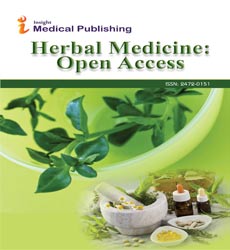15th International Conference on Frontiers in Alternative & Traditional Medicine July 15-16, 2020. Singapore
Aref Abu-Rabia
Aref Abu-Rabia
University of the Negev,Beer-Sheva, Israel, Email: arefabu@gmail.com
Traditional medicine (a term utilized here to indicate the indigenous wellbeing conventions of the world) and reciprocal and elective medication (T/CAM) have, in the previous 10 years, guaranteed an expanding offer of people in general's mindfulness and the plan of restorative analysts. Studies have recorded that about a large portion of the number of inhabitants in many industrialized nations currently utilize T/CAM, and the extent is as high as 80% in many creating nations.
Most research has concentrated on clinical and trial prescription (security, adequacy, and system of activity) and administrative issues, to the general disregard of general wellbeing measurements. General wellbeing research must think about social, social, political, and monetary settings to augment the commitment of T/CAM to human services frameworks all inclusive.
The Development OF Open enthusiasm for and utilization of traditional medication and correlative and Alternative drugs (T/CAM) has been all around reported. Half the populace in many industrialized nations currently frequently utilize some type of T/CAM (Joined States, 42%1; Australia, 48%2; France, 49%3; Canada, 70%4), and extensive utilize exists in many creating nations (China, 40%; Chile, 71%; Colombia, 40%; up to 80% in African countries5,6). Well known utilization of T/CAM has been joined by a development in research and related writing, with an expansion in a proof based methodology over the past decade.7 In creating nations, where T/CAM has for some time been drilled both inside and outside the overwhelming medicinal services framework, intrigue has been working over the previous decade for an arrangement structure for T/CAM inside national social insurance frameworks, and a few rules have been made.


Open Access Journals
- Aquaculture & Veterinary Science
- Chemistry & Chemical Sciences
- Clinical Sciences
- Engineering
- General Science
- Genetics & Molecular Biology
- Health Care & Nursing
- Immunology & Microbiology
- Materials Science
- Mathematics & Physics
- Medical Sciences
- Neurology & Psychiatry
- Oncology & Cancer Science
- Pharmaceutical Sciences
